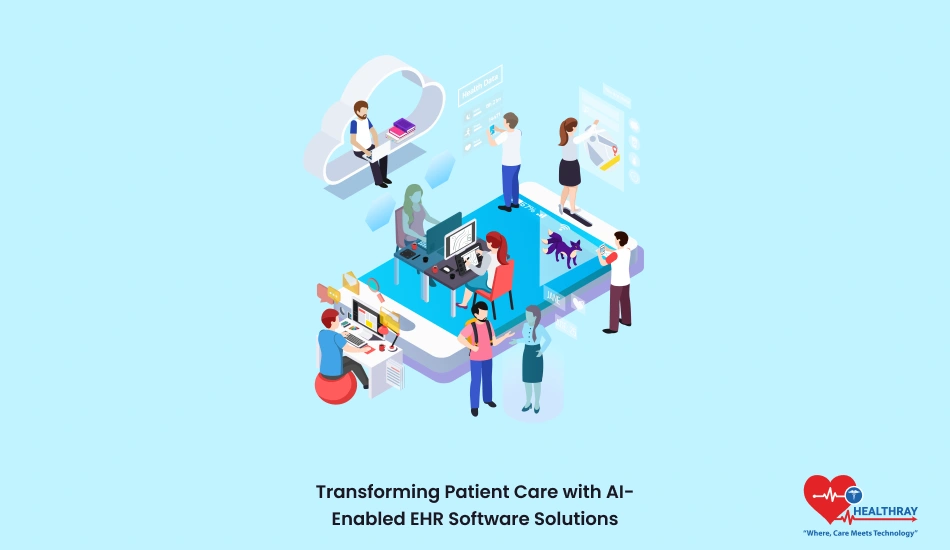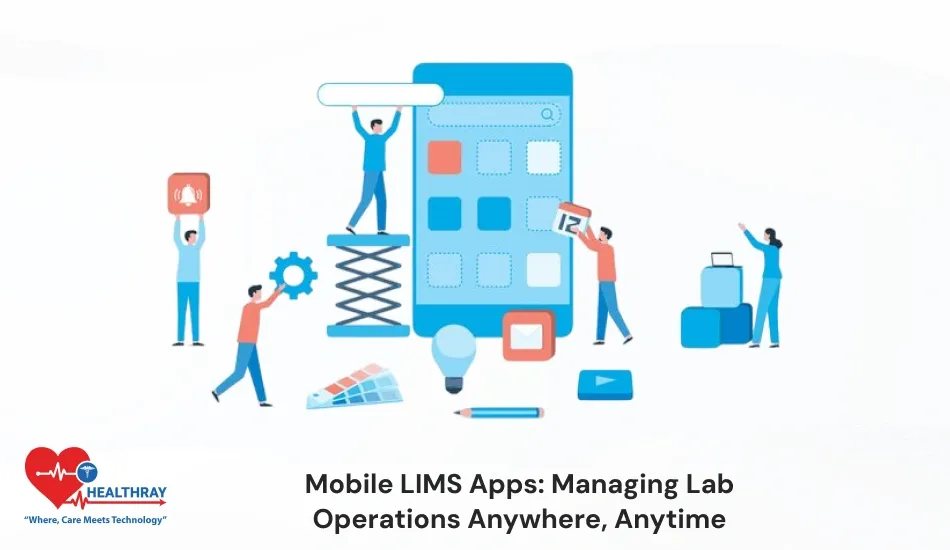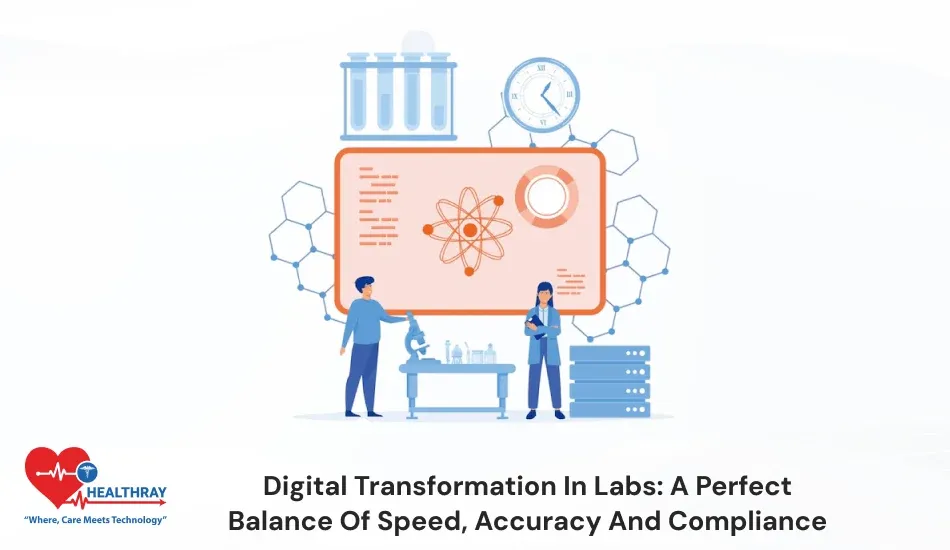Healthcare has seen incredible transformations over the years, but few advancements are as exciting as the integration of Artificial Intelligence (AI) into Electronic Health Record (EHR) systems. EHRs have been a cornerstone of modern healthcare, replacing paper records and streamlining access to patient data. However, traditional EHR systems often come with their own set of challenges, like administrative overload, data inaccuracies, and limited decision-making support.
This is where AI steps in as a game-changer. By enabling smarter, faster, and more intuitive EHR systems, AI is reshaping the way healthcare providers interact with patient data. From automating routine tasks to offering predictive insights that can save lives, AI-enabled EHR solutions hold the potential to truly transform patient care. But what makes this transformation so impactful?
In this blog, we’ll dive into how AI is addressing the limitations of current EHR Software. You’ll learn about the specific ways AI improves workflows, enhances data accuracy, and supports better decision-making for healthcare providers. Plus, we’ll explore real-world examples of AI integration and discuss how these solutions can overcome implementation challenges to unlock a future of patient-centered care.
The Challenges in Current EHR Systems
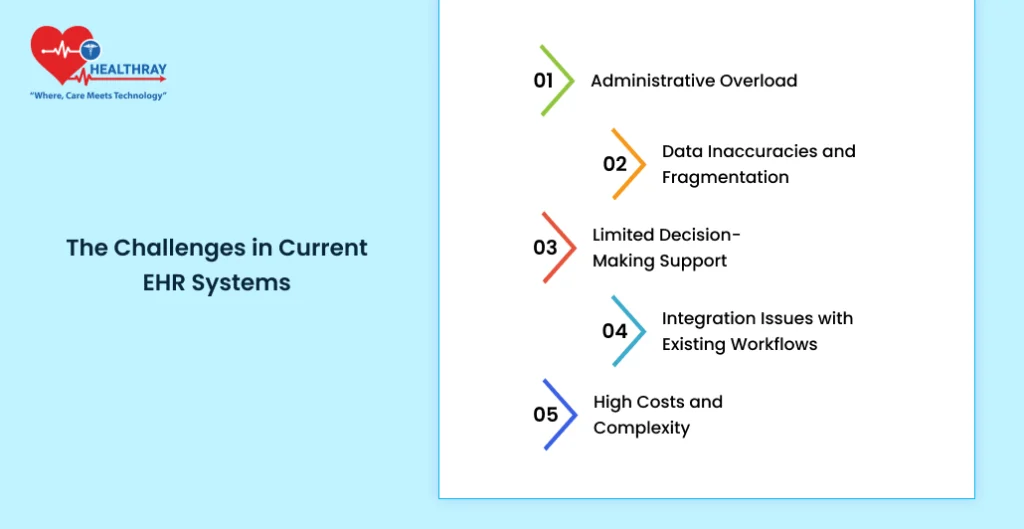
Electronic Health Record (EHR) systems have undeniably transformed healthcare by digitizing patient information. But despite their widespread adoption, they are not without flaws. These challenges often hinder healthcare professionals and organizations from fully realizing the potential of EHR systems.
Administrative Overload
One of the most common complaints about traditional EHR systems is the sheer administrative burden they place on healthcare providers. Doctors, nurses, and staff spend countless hours inputting and managing data, leaving less time for patient interaction. This has contributed to increased burnout among clinicians.
Data Inaccuracies and Fragmentation
EHR systems often rely on manual data entry, which can lead to errors. Inconsistent or outdated information across systems can create confusion and impact patient care. Additionally, the lack of seamless data-sharing between different platforms further complicates access to a complete patient history.
Limited Decision-Making Support
Traditional EHRs are primarily designed for data storage and retrieval, offering little in terms of actionable insights. Providers are left to sift through mountains of data without advanced tools to identify patterns, predict outcomes, or support critical decisions.
Integration Issues with Existing Workflows
Healthcare facilities often struggle to integrate EHR systems into their existing workflows. This can lead to inefficiencies, as staff must adapt to rigid processes that may not align with their day-to-day operations.
High Costs and Complexity
Implementing and maintaining EHR systems is costly, especially for smaller healthcare facilities. Coupled with complex user interfaces and inadequate training, the financial and operational challenges make adoption less appealing.
How AI is Revolutionizing EHR Systems
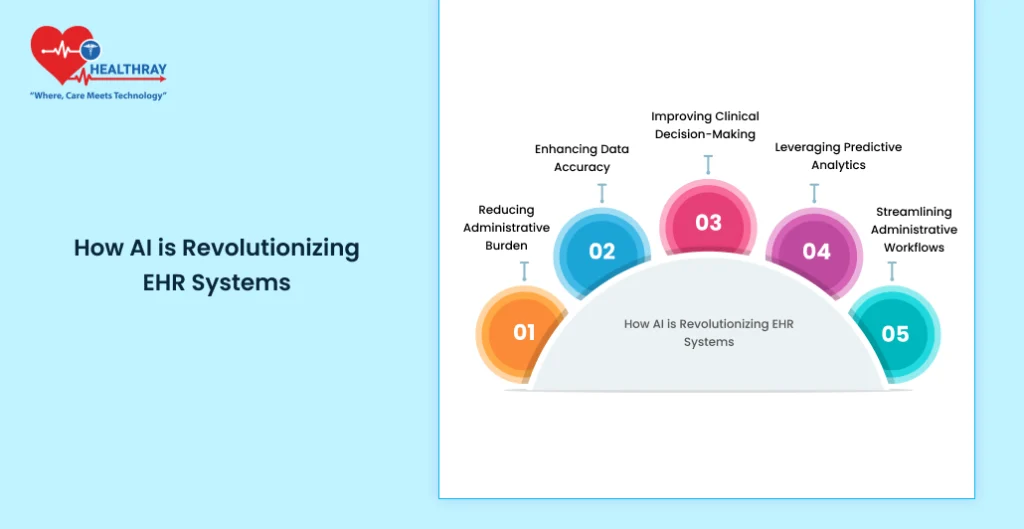
Artificial Intelligence (AI) is more than just a buzzword in healthcare—it’s a transformative force reshaping how Electronic Health Records (EHR) function. By addressing the challenges of traditional systems, AI-enabled EHR solutions are making healthcare processes smarter, faster, and more patient-focused.
Reducing Administrative Burden
One of the most practical applications of AI in EHR systems is automating routine administrative tasks. Data entry, appointment scheduling, and coding are streamlined through intelligent automation. For instance, AI can populate patient records in real time, freeing up providers to spend more time with patients rather than on clerical work.
Enhancing Data Accuracy
AI-powered systems excel at identifying and resolving inconsistencies in patient data. By analyzing large volumes of information, these systems can flag errors or missing details. AI also ensures seamless data-sharing between different platforms, allowing providers to access comprehensive and up-to-date patient histories.
Improving Clinical Decision-Making
AI’s ability to analyze vast datasets and provide actionable insights is a game-changer for clinicians. From recognizing patterns in patient histories to recommending personalized treatment options, AI empowers healthcare providers to make informed decisions faster. For example, it can predict potential complications based on a patient’s medical history, enabling timely interventions.
Leveraging Predictive Analytics
Predictive analytics is one of the most exciting applications of AI in EHR systems. By analyzing trends in patient data, AI tools can forecast outcomes and identify high-risk individuals. This capability helps providers intervene early, reducing hospital readmissions and improving long-term care outcomes.
Streamlining Administrative Workflows
Beyond data entry, AI optimizes administrative processes such as billing and claims management. It can detect errors in insurance claims and automate approvals, reducing delays and financial losses for healthcare facilities.
Case Studies: Real-World Applications
The integration of AI into EHR systems is no longer theoretical. Many healthcare providers and institutions are already leveraging these advanced tools to improve efficiency, accuracy, and patient care. Let’s look at some real-world examples of how AI-enabled EHR solutions are making a difference.
Mayo Clinic’s AI Integration Success
The Mayo Clinic has been at the forefront of adopting AI in healthcare. By integrating AI with their EHR systems, the institution has significantly improved its ability to analyze patient data. AI tools help their clinicians predict complications, streamline workflows, and enhance the overall quality of care. This has resulted in reduced hospital readmission rates and better resource allocation.
Predicting Sepsis in Real Time
Several hospitals have adopted AI-powered EHR systems that specialize in predicting sepsis—a life-threatening condition. These systems analyze patient vitals and historical data to provide real-time alerts for early intervention. This has saved countless lives by enabling medical teams to act before the condition worsens.
Automating Administrative Processes in Mid-Sized Clinics
Mid-sized clinics often face challenges with limited resources. Some have implemented AI-enabled EHR solutions to automate administrative tasks such as appointment scheduling, billing, and patient follow-ups. This has reduced the workload for administrative staff and allowed clinicians to focus more on patient care.
Enhancing Telemedicine with AI
During the rise of telemedicine, AI-enabled EHRs proved invaluable. They facilitated seamless data sharing between patients and providers, ensuring accurate diagnoses during virtual consultations. AI tools also analyzed patient symptoms to recommend preliminary treatment options, boosting the effectiveness of remote care.
A Small Hospital’s Transformation Journey
A community hospital partnered with an AI-EHR vendor to tackle inefficiencies in data entry and record-keeping. Within months, the hospital reported fewer data errors, improved staff satisfaction, and enhanced patient outcomes. Their success story demonstrates how even smaller institutions can benefit from AI’s capabilities.
Implementation and Adoption Considerations
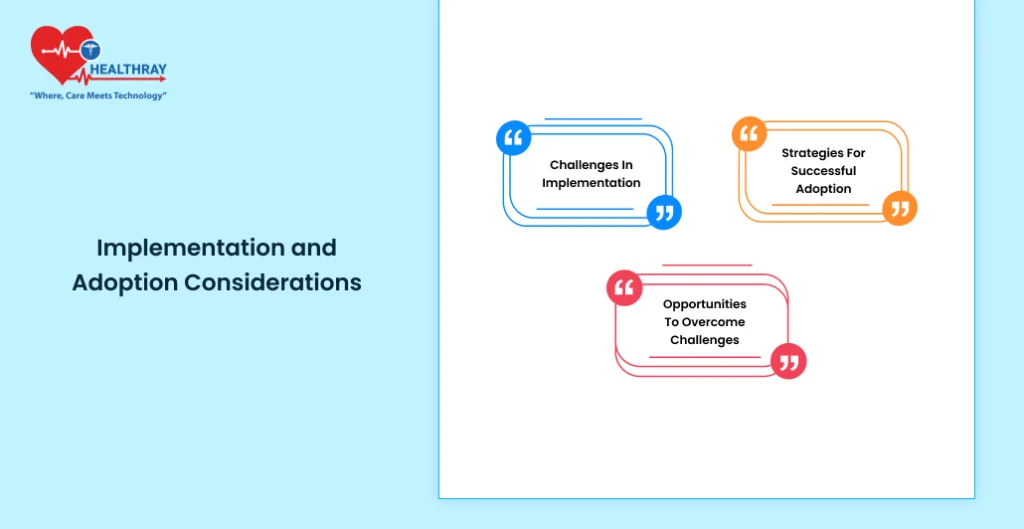
While the benefits of AI-enabled EHR solutions are undeniable, implementing these systems comes with its own set of challenges. Healthcare organizations need a clear strategy to ensure successful adoption and seamless integration.
Challenges in Implementation
- Cost Concerns: The upfront investment for AI-enabled EHR solutions can be significant, especially for smaller healthcare providers. While the long-term benefits are substantial, the initial costs can be a barrier.
- Integration with Existing Systems: Many healthcare facilities already have legacy systems in place. Integrating AI tools with these older systems can lead to compatibility issues, causing delays and inefficiencies.
- Training Requirements: Staff members often require extensive training to adapt to new AI-driven tools. Without adequate training, the technology may not be used to its full potential, reducing its effectiveness.
- Regulatory Compliance: AI solutions in healthcare must adhere to strict regulations, including patient privacy laws like HIPAA. Ensuring compliance during implementation is critical to avoid legal and ethical issues.
Strategies for Successful Adoption
- Partnering with the Right Vendor: Choosing a vendor with expertise in AI and a proven track record in healthcare is key. Vendors should offer customizable solutions that can integrate smoothly with existing workflows.
- Pilot Testing: Running a pilot program before full-scale implementation allows organizations to identify potential issues and address them proactively.
- Staff Training Programs: Comprehensive training programs for all users, from administrative staff to clinicians, ensure the technology is used effectively. User-friendly interfaces can also make the transition smoother.
- Budget Planning: Developing a detailed cost-benefit analysis helps in securing funding and demonstrating the long-term ROI of AI-enabled EHR systems.
- Compliance Checks: Collaborating with legal and compliance teams ensures that the solution adheres to all regulatory requirements from the outset.
Opportunities to Overcome Challenges
- Governments and industry organizations are offering grants and incentives to support AI adoption in healthcare.
- Collaboration between healthcare providers and technology developers can lead to tailored solutions that meet specific needs.
- Cloud-based EHR systems powered by AI offer scalable and cost-effective alternatives, reducing the financial burden for smaller institutions.
Benefits of AI-Enabled EHR Solutions
The integration of AI into Electronic Health Record (EHR) systems is more than just a technological upgrade it’s a transformation of how healthcare providers manage patient care. Here are some key benefits that demonstrate why AI-enabled EHR solutions are becoming indispensable in modern healthcare.
Reducing Clinician Burnout
AI automates repetitive and time-consuming tasks like data entry, billing, and appointment scheduling. This gives clinicians more time to focus on patient interactions, reducing stress and improving job satisfaction. Studies have shown that healthcare providers using AI-driven tools report significantly lower levels of burnout.
Improving Patient Outcomes
AI enhances clinical decision-making by analyzing complex data sets and identifying patterns that might go unnoticed. For example, AI can recommend personalized treatment plans based on a patient’s medical history, leading to more precise and effective care.
Increasing Data Accuracy
Traditional EHR systems often suffer from errors caused by manual entry. AI-enabled systems can flag inconsistencies and fill gaps in real time, ensuring that healthcare providers work with accurate and up-to-date information.
Enhancing Operational Efficiency
AI streamlines administrative workflows, such as managing insurance claims and processing patient records. Hospitals and clinics using AI-enabled EHR solutions have reported faster turnaround times and improved overall efficiency.
Enabling Predictive Healthcare
AI-powered predictive analytics help providers identify patients at risk of developing severe conditions. For instance, by analyzing a patient’s vitals and lab results, AI can flag early warning signs of diseases like diabetes or hypertension. This allows for timely interventions that prevent complications.
Supporting Patient-Centered Care
AI tools offer features like voice-to-text transcription, which allows providers to document consultations seamlessly. This minimizes disruptions during patient interactions and ensures better communication between providers and patients.
Saving Costs Over Time
While the initial investment in AI-enabled EHR solutions may seem high, the long-term cost savings are substantial. Automation reduces errors, speeds up processes, and minimizes waste, all of which contribute to lower operational expenses.
Future of AI in EHR and Patient Care
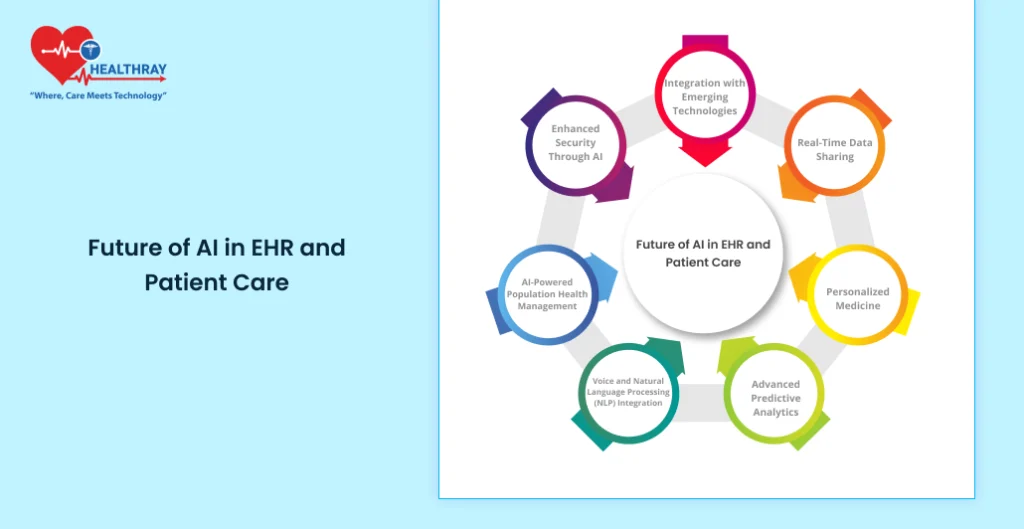
The future of AI in Electronic Health Records (EHR) is bright, with advancements poised to redefine how healthcare is delivered and managed. As AI technologies evolve, their integration with EHR systems is expected to unlock even greater potential for improving patient outcomes and streamlining operations.
Real-Time Data Sharing
The next generation of AI-enabled EHR systems will focus on seamless real-time data sharing between healthcare providers, patients, and other stakeholders. This will enhance collaboration, reduce duplication of tests, and provide a more holistic view of patient health.
Personalized Medicine
AI’s ability to analyze vast datasets will lead to more tailored treatment plans. Future systems could integrate genomic data with medical histories to offer highly specific recommendations for individual patients, marking a significant step toward personalized medicine.
Advanced Predictive Analytics
As predictive analytics become more sophisticated, AI-driven EHRs will be capable of forecasting long-term health outcomes. For example, they might predict chronic disease progression or identify patients who would benefit from preventive care, enabling proactive interventions.
Voice and Natural Language Processing (NLP) Integration
Voice recognition and NLP technologies are expected to further streamline documentation processes. Providers will be able to dictate notes during consultations, while AI processes the information in real-time and integrates it into the EHR system with minimal manual input.
AI-Powered Population Health Management
Future AI-enabled EHRs will play a pivotal role in managing the health of populations by identifying trends and risks across demographics. These systems will assist public health officials and organizations in creating targeted healthcare initiatives.
Enhanced Security Through AI
As cyber threats grow, AI will contribute to making EHR systems more secure. Advanced algorithms can detect and prevent unauthorized access, ensuring that patient data remains safe and compliant with regulations.
Integration with Emerging Technologies
The future will likely see AI-enabled EHR systems working alongside other cutting-edge technologies, such as wearable health devices, IoT, and blockchain. These integrations will create a connected ecosystem, offering real-time monitoring and secure data management.
Conclusion
AI-enabled EHR solutions are more than just technological advancements—they represent a fundamental shift in how healthcare is delivered and managed. By addressing the limitations of traditional EHR systems, AI brings new levels of efficiency, accuracy, and patient-centered care to the forefront.
From automating administrative tasks to providing predictive analytics and improving clinical decision-making, AI is transforming the way healthcare providers interact with data. Real-world examples, such as those from leading institutions like the Mayo Clinic, showcase the tangible benefits of this integration. Additionally, the future of AI in the Hospital Management System holds even greater promise, with advancements in personalized medicine, real-time data sharing, and enhanced security on the horizon.
For healthcare administrators, doctors, and innovators, now is the time to explore AI-enabled EHR solutions. They not only streamline workflows and reduce costs but also empower providers to focus on what truly matters—delivering exceptional patient care.
